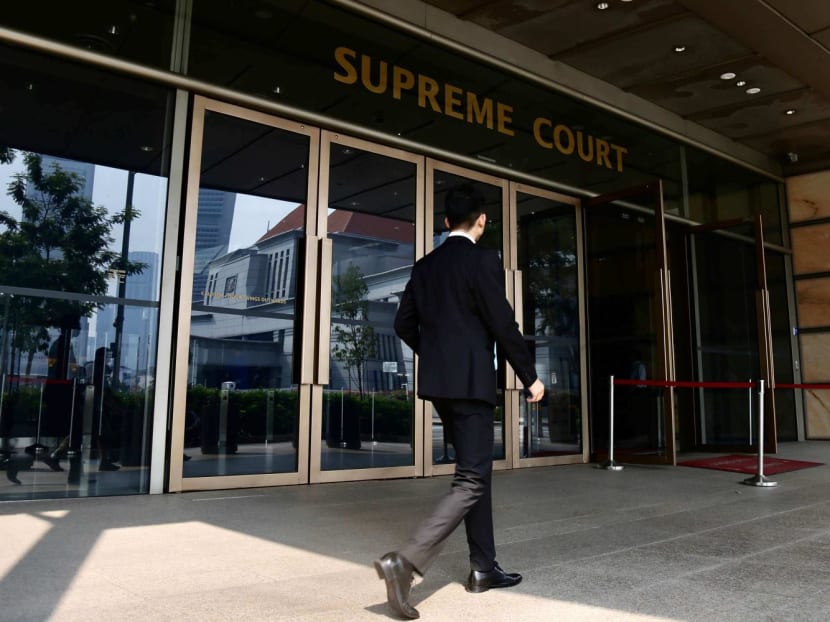Apex court dismisses drug trafficker’s appeal against death sentence, flags prosecution’s time wastage on 'irrelevant issue'

- Chong Hoon Cheong was convicted in the High Court of trafficking more than 15g of pure heroin
- The offence carries the mandatory death penalty
- His appeal was dismissed by three apex court judges on July 5
- The judges noted that the prosecution should not have mounted two cases during the trial, which wasted time
SINGAPORE — The Court of Appeal on Tuesday (July 5) upheld a man’s conviction and death sentence for drug trafficking, while pointing out that “much time was wasted” because of the prosecution’s decision to run an alternative case during the trial.
Three judges in the apex court also laid out guidelines for how to interpret an accused person’s statement given to the authorities during investigations, in order to determine how much to rely on such statements.
The drug trafficker, Chong Hoon Cheong, was convicted in the High Court last year of a capital offence of possessing at least 25.01g of pure heroin (diamorphine) for the purpose of trafficking.
Under the Misuse of Drugs Act, anyone convicted of trafficking more than 15g of the Class A controlled drug will be given the mandatory death penalty.
Four bundles of drugs were seized from Chong’s rental room in the Bendemeer area in December 2015. Central Narcotics Bureau (CNB) officers later took seven statements from him.
During his High Court trial, Chong claimed that 14.08g of the pure heroin was for his personal consumption. Justice Vincent Hoong found that he failed to establish this defence and convicted him.
In his apex court appeal, Chong maintained the same defence. He further argued through his lawyers that Justice Hoong had erred in finding him guilty after rejecting the prosecution’s primary case against him.
HIGH COURT’S DECISION
On Tuesday, the three-judge apex court panel stressed that the prosecution should “seriously consider” if it needs to run an alternative case when it can rely on the presumption that an accused person possessed drugs for trafficking purposes.
One of the elements of making out a drug trafficking charge is whether the accused possessed the drugs to traffic them.
This element can only be presumed to be proven if two other elements — possession of the drug, and knowledge of the nature of the drug — have been proven.
In Chong’s case, these two elements were not disputed and thus proven beyond a reasonable doubt.
In the High Court trial, prosecutors ran two cases against Chong for the same offence.
Their primary case was that the evidence proved he possessed the drugs for trafficking. They argued that his statements under questioning by CNB showed that he had essentially admitted the 14.08g of pure heroin was meant to be repacked and delivered.
Their alternative, or secondary, case was that Chong was presumed to have possessed at least 25.01g of pure heroin for the purposes of trafficking.
Justice Hoong rejected the prosecution’s primary case, disagreeing that Chong’s statements could sustain the weight of his conviction.
The judge found that two factors — the possibility of Chong being intoxicated on drugs when he gave his first statement, together with a reasonable doubt as to how his statements could be properly interpreted — combined to raise a reasonable doubt about his guilt.
Justice Hoong then convicted Chong based on the prosecution’s alternative case.
Chong argued before the Court of Appeal that he should have been acquitted because he had successfully raised a reasonable doubt.
'LED INTO ERROR'
The three apex court judges found that although Justice Hoong indeed erred in finding there was reasonable doubt about Chong’s guilt, he was “led into error” because of how the prosecution mounted its cases.
Justice Hoong had focused on Chong’s CNB statements but excluded all other evidence.
However, the apex court said that the true question to consider was whether, taking all the evidence into consideration, Chong had succeeded in his personal consumption defence.
Chief Justice Sundaresh Menon, in delivering the court’s decision, said that the prosecution “needlessly complicated” the matter by advancing its primary case based on Chong’s statements alone.
Given the large quantity of drugs involved, it would have been an "obvious" ground for asking the court to infer that Chong possessed it for trafficking, Chief Justice Menon added.
"Unfortunately, because the respondent erroneously ran its primary case purely on the basis of the appellant’s alleged admissions in his statements, much time was wasted in addressing that irrelevant issue.”
The three judges also set out the proper approach to interpreting statements made by accused persons:
- Determine the precise content of the statement, whether oral or written
- Determine the intended meaning of the statement — that is, the subjective intention of the statement-maker at the time
If there is reasonable doubt over what an accused actually stated or what he intended to say, the court should not rely on the statement to determine whether parties have successfully proven their cases on the applicable standards, Chief Justice Menon said.
The judges found that in Chong’s case, reasonable doubt was raised at the second step because Chong did not specify in his fourth statement to CNB which bundle he intended to repack.
However, the apex court said that these disputed paragraphs in his statement should simply have been disregarded, and Justice Hoong should have focused on whether Chong possessed the 14.08g of pure heroin for trafficking or consumption.
The three judges then agreed with Justice Hoong that Chong failed to establish his consumption defence, and upheld the conviction and sentence.
Along with Chief Justice Menon, Judges of Appeal Judith Prakash and Andrew Phang presided over the appeal.








